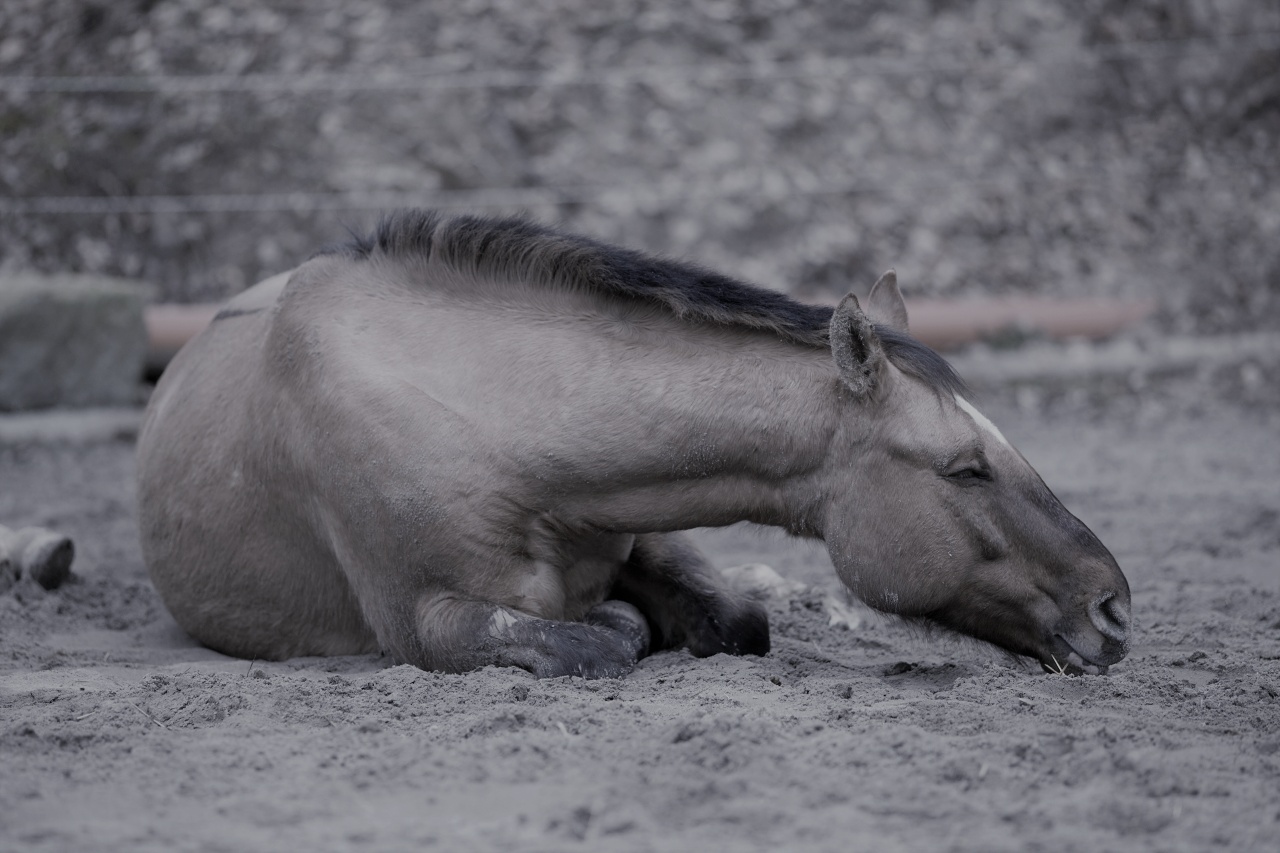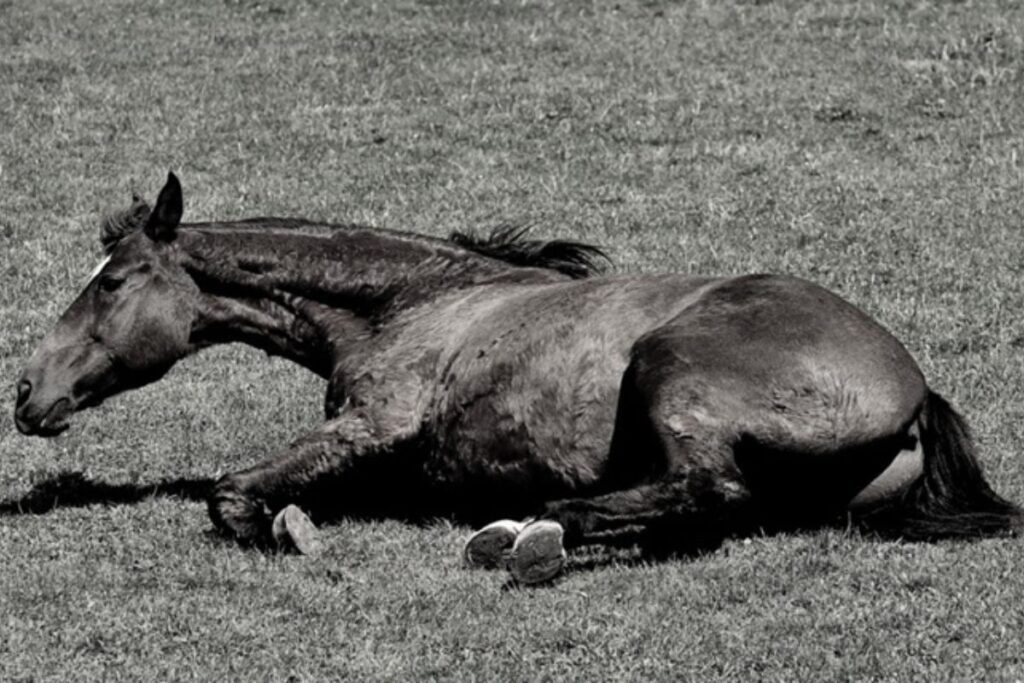Menu

Colic is one of the diseases most seen in the equine world, and it is never fun to stand with a colic horse. Impatiently you wait for the vet to come to the horse's rescue. And of course, you do everything you can to save your best friend until the vet arrives. Unfortunately, as a horse owner, you do not always act appropriately in a panic - and this can affect both you and your horse. We have taken a closer look at the situation surrounding a colic attack. What you can do and what should you absolutely not do.
As you probably already know, colic is, in short, a disorder in which the horse gets a really bad stomachache. One can rarely say exactly what colic comes from, but it is often due to one of these three, overriding factors: Not enough exercise, improper feeding and worms.
This was confirmed in a Danish veterinary study from 2019. Thus, many types of acute colic could have been avoided. If for example the horse had been in the box for fewer hours, had had free access to straw feed, was not exposed to sudden feed changes, and was examined more frequently for worms.
You may also like to read: Spot the horse’s sunburn and give first aid to the scalded muzzle
Not all horses show the same symptoms. But when you call your vet, it is best to be "up to date" with the horse's medical history and behavior up to the colic attack. Has the horse had a tendency to colic in the past? What is the history of diarrhea or constipation? How is its appetite?
If you can answer these things, you are a great help when your vet needs to diagnose and find treatment. In addition, it is good to keep an eye on the horse's temperature and behavior. Does it behave as usual, is it lethargic or is it hyper?
• Decreased or ceased appetite
• Looking for the flanks
• Scraping with the hooves
• Sweating
• Positions itself in an extended position
• Lifts and swings its tail
• Lies down abnormally much
• Has increased heart rate
• Increased respiratory rate
• Shows signs of diarrhea
• Has no stool at all
• Rolls repeatedly
If you see just a few of these symptoms, you should call the vet.
Source: Herfølge Animal Clinic.

• Never hesitate to call your veterinarian if your horse shows signs of colic. The sooner your horse gets treatment, the greater the chance for a full recovery.
• Do not medicate your horse until you have been guided by the vet. That way, you make sure that you do not do anything that harms more than it benefits. You should always be on the safe side. It certainly does not help your veterinarian to make a diagnosis if you have given medication to alleviate the symptoms.
• Take care of yourself. We have heard stories of horse people who in desperation have tried to keep their colic-stricken horses upright so that they do not lie down and get intestinal loop. Unfortunately, with a bad outcome for the horse owner, who got into some real trouble. Take care of yourself, even when your mind is focused on trying to save your horse.
• Take the horse on walks. Besides being able to distract the horse from the stomachache, this helps keeping the intestinal system working if the colic is due to constipation.
• Remove all feed - including straw and / or seed grass. Make sure you have water nearby.
• Try to get some company in the stable. It is good to have someone to comfort you and help you with the practicalities while you keep an eye on your horse.
Although it is not nice to think about, as a horse owner you have to imagine what you will do if the worst should happen. If the horse does not make it through the colic attack. If your horse is insured, you need to consult your veterinarian. You need information on what the insurance company should know in case the horse does not make it.
Your veterinarian may choose to hospitalize your horse. Of course, it is your decision whether this should happen. It is important to know that it can be very expensive.
Overall, we would advise you to do as the vet suggests, and in general try to let the vet do his job. Even though it is an emotional rollercoaster. Always remember that you have the same goal - to save your horse!